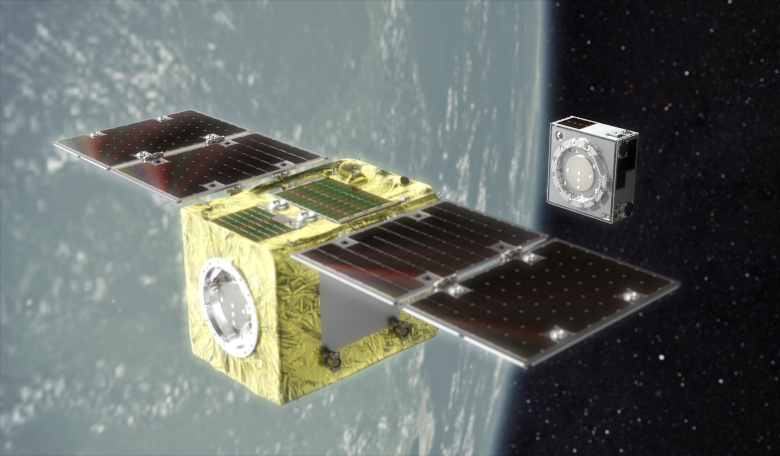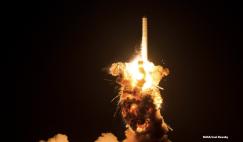Satellite servicing firm Astroscale is getting ready to launch its ELSA-d mission – the world’s first commercial demonstration of space debris docking, capture and removal in lower earth orbit (LEO).
This ground-breaking mission will launch Saturday, 20 March from the Baikonur Cosmodrome on a Soyuz rocket operated by GK Launch Services and will be operated from the UK at the Satellite Applications Catapult at Harwell Campus, Oxfordshire.
Among the technologies Astroscale hopes to test over the next few months are a non-tumbling docking demonstration, tumbling docking alignment and settling, client analysis, separation and commissioning and client discovery.
The Tokyo-based startup will monitor ELSA-d, or End of Life Services, using its own In-Orbit Servicing Control Centre National Facility (IOCC); a facility the company says is the first mission control centre dedicated to in-orbit servicing.
“In-orbit servicing and manufacturing capabilities are fundamental to long term space sustainability. Without effective in-orbit servicing and manufacturing, space risks being over-exploited and under-managed, to the detriment of everyone,” said John Auburn, Astroscale's UK managing director and Co-Chair of the UKspace In-orbit services and manufacturing (IOSM) working group.
Space junk is a big problem. Since the first satellite was launched by the Soviet Union in 1957, it is now estimated that there are over 3,600 working satellites in orbit and this number is set to increase.
Earlier this year, SpaceX set a new world record for the most number of satellites sent to space on a single rocket, when it lofted 143 payloads in one go; a title that once belonged to the Indian Space Research Organization (ISRO), who in 2017, deployed 104 satellites on a single booster.
Although SpaceX itself had “just” 10 satellites on the flight, Elon Musk’s firm is planning on launching thousands of satellites as part of its Starlink off-world broadband enterprise.
SpaceX, however, are not alone in their endeavours. Many companies, including Amazon’s Project Kuiper, OneWeb and an unknown Chinese firm all have plans to launch hundreds if not thousands of satellites themselves to facilitate similar worldwide broadband services.
With such vast numbers of satellites anticipated, there is a clear market for the removal of unwonted space junk. Aiming to take the lead in end-of-life services and active debris removal is Astroscale, with the aid of the UK government.
Last week, the UK Space Agency issued space licences under the UK Outer Space Act for both the ELSA-d servicer and client spacecraft.
The ‘Servicer’ is equipped with optical sensing instruments and a capture mechanism that will attach to a Docking Plate on the ‘Client’ satellite. The Servicer and Client will then de-orbit together, burning up as they re-enter the Earth’s atmosphere.
This is the first time, the UK Space Agency has licensed a company for an In-Orbit Service / End of Life demonstration space mission.
The UK government also awarded Astroscale a grant of £4.2 million to develop the firm’s IOCC facility.
In return, the UK hopes the move will attract both local and international in-orbit servicing space industry partners to apply for licences under UK legislation and regulation.
“The removal of hazardous space debris is not only environmentally important but is also a huge commercial opportunity for the UK, with companies like Astroscale leading the way in demonstrating how we can make space safer for everyone,” said Amanda Solloway, UK Science Minister. “I am proud the UK Government not only helped make this mission a reality but is Europe’s largest investor in helping with space clean-up.”











